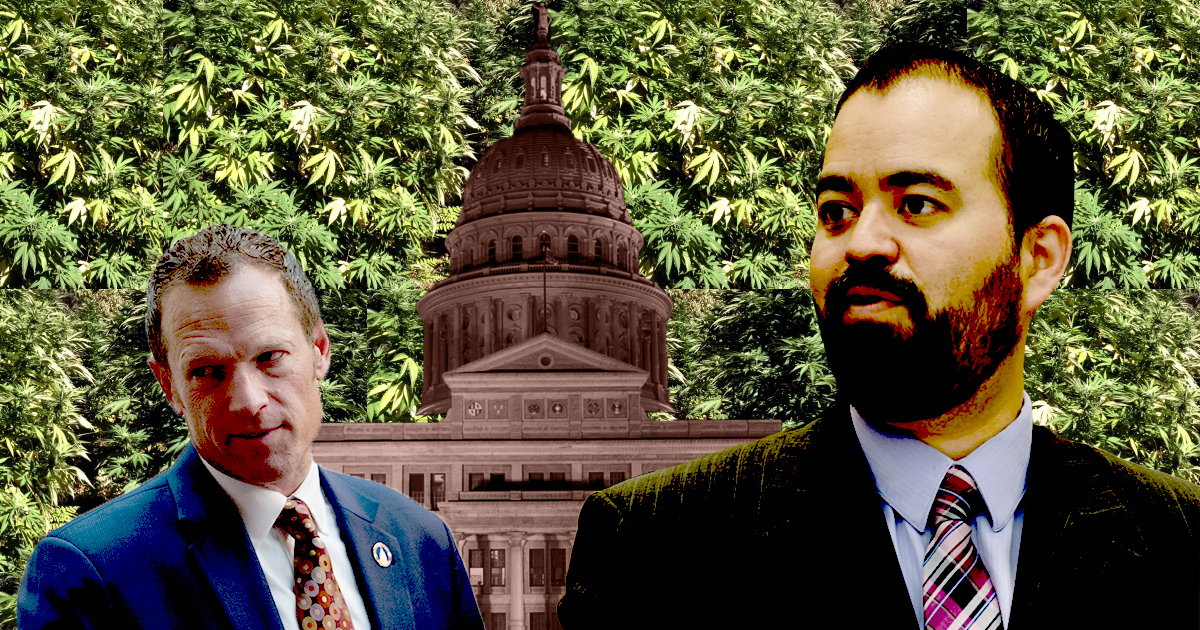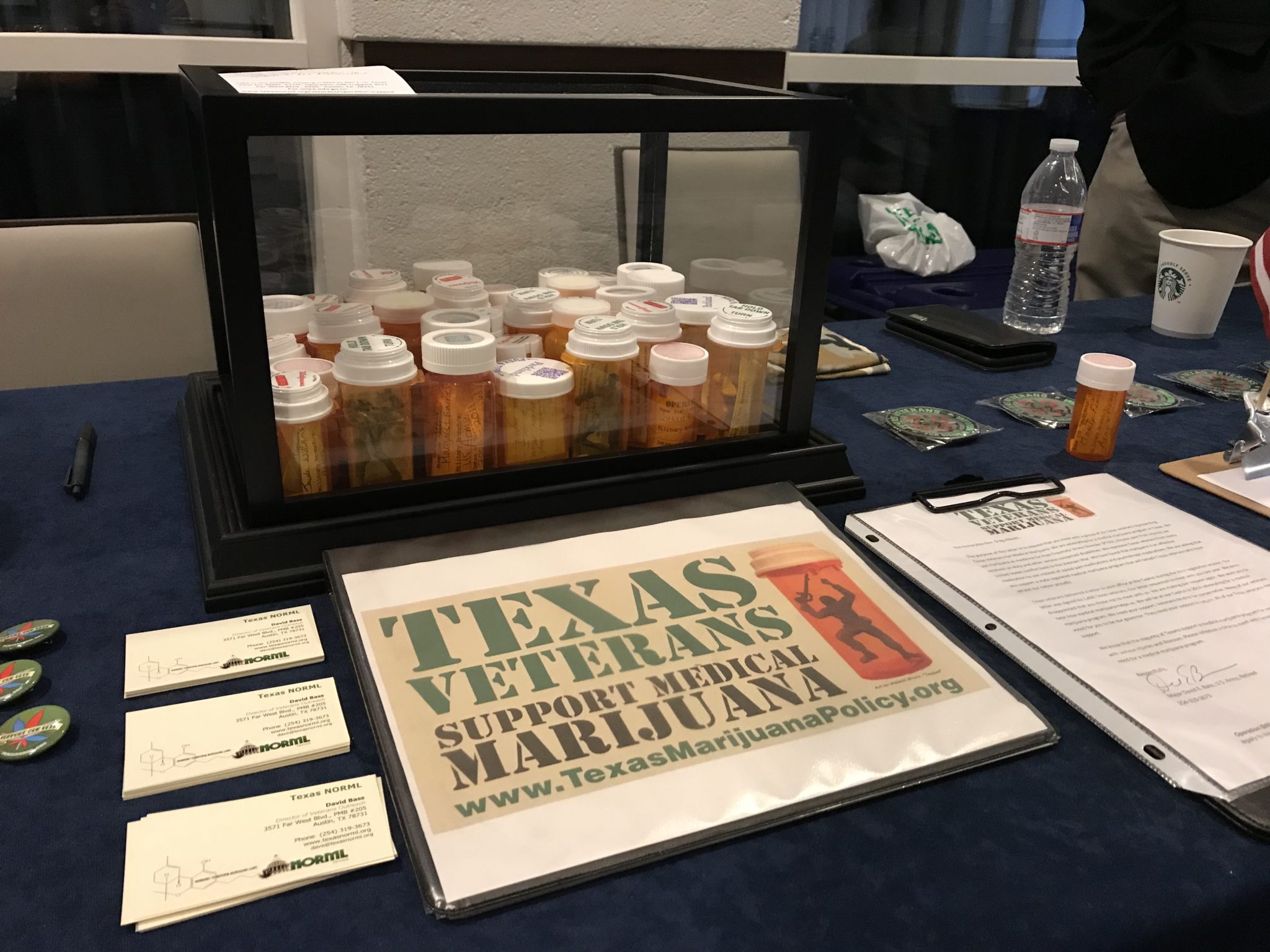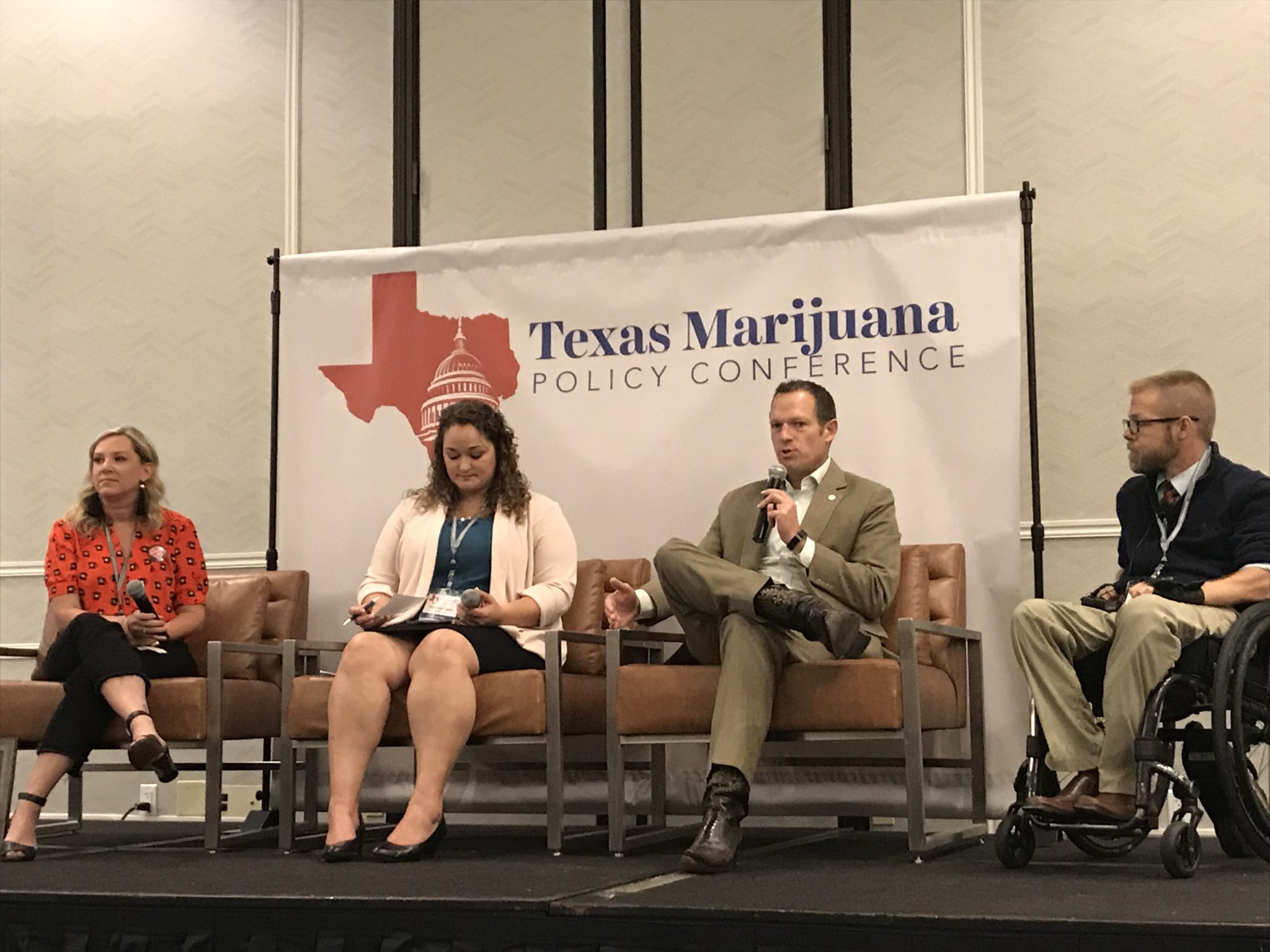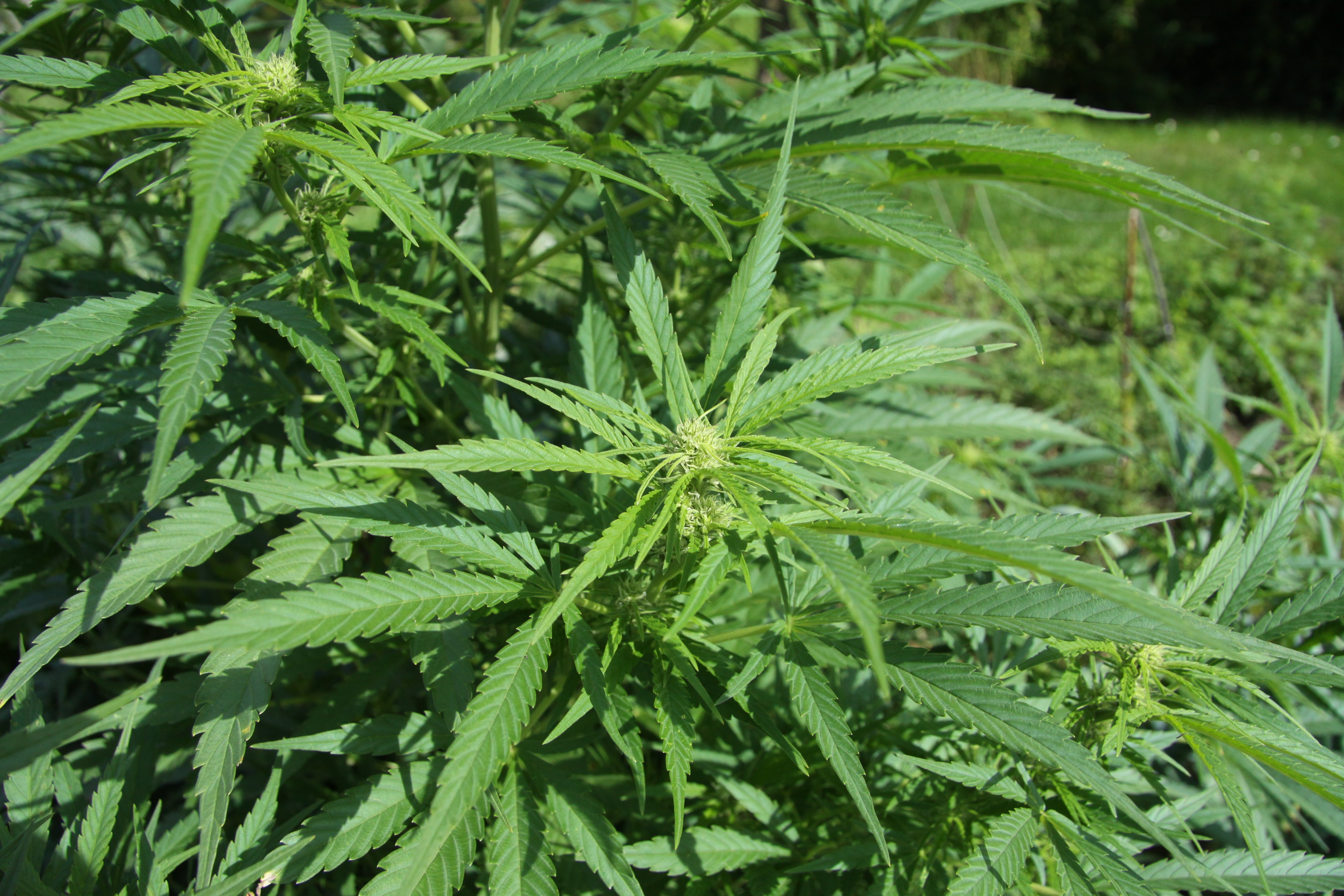
Reformers Hopeful the 2019 Legislature will Expand Texas’ Medical Marijuana Law
Activists are mapping a path to end arrests for possession and broaden the state's medical marijuana program ahead of the next legislative session.
Shortly after returning to Washington state in 2007 from a 16-month deployment in Afghanistan, retired U.S. Air Force Staff Sergeant April Martinez began suffering from chronic migraines.
“In over 11 years I have not had one moment pain-free,” Martinez said. “Every night I went to sleep, I prayed I just wouldn’t wake up.”
After a slew of medications failed to alleviate her symptoms, a doctor eventually prescribed her medical marijuana, in liquid form, for chronic pain. The 40-year-old veteran said the treatment “gave me my life back.”

“I could use this medicine and I could play with my kids. I could go to the grocery store or take them to the park. It made me want to live and to keep trying every day,” Martinez said. “Then in 2015, my husband retired and we came back to Texas, and my world crashed because I didn’t have that option anymore.”
Martinez was one of seven speakers on a panel of patients and caregivers at the inaugural Texas Marijuana Policy Conference August 10-12. Religious leaders, physicians, policymakers and veterans met at a Sheraton in downtown Austin to discuss their priorities for the upcoming Texas legislative session. The two most talked-about reform efforts: reducing criminal penalties for possession and expanding the extremely limited Texas Compassionate Use Act, the state’s first medical marijuana law, passed in 2015.
Texas is one of about a dozen states that permit doctors to prescribe low-THC cannabis only to patients who suffer from intractable epilepsy and whose symptoms have not responded to federally approved drugs. At least 345,000 Texans with epilepsy don’t qualify; more than 30 other states offer more comprehensive medical marijuana programs.
Veterans have testified at the Texas Capitol in recent years in support of expanding the law to cover PTSD, chronic pain and other ailments. Last session, a majority of lawmakers in the House signed on to legislation that would have dramatically expanded the legal medicinal uses of marijuana. After passing out of committee, the bill failed to reach the House floor for debate. Still, growing bipartisan support among voters and lawmakers has activists optimistic for 2019.

“Conservatives throughout the state are seeing this as an issue of a matter of people; it’s not about politics,” said Heather Fazio, coalition coordinator for Texans for Responsible Marijuana Policy, which organized the conference.
In addition to making more conditions eligible, activists want to remove the law’s relatively low cap on THC, add legal protections for doctors who prescribe it and encourage cannabis research.
“To me, it’s selfish that this state can’t acknowledge that [I’m in pain], and give me what I need to try and be a better human being, a better wife, a better mother.”
Criminal justice reformers, including state Representative Joe Moody, a former El Paso County prosecutor, also hope to reduce the criminal penalties for possession next year.
Moody, a Democrat who serves as chair of the House Criminal Justice Committee, told the Observer that he plans to refile a version of last session’s House Bill 81. That measure would make possession of 1 ounce or less or marijuana a civil offense punishable by up to a $250 fine.
“No arrest, no jail time, and no criminal record,” reads a Texans for Responsible Marijuana Policy legislative priorities packet handed out at the conference.
Currently, possession of up to 2 ounces is a Class B misdemeanor that can land a violator in jail for up to six months. More than 70,000 people are arrested each year for marijuana possession in Texas — the majority of drug arrests, according to the Texas Criminal Justice Coalition.
In 2017, the decriminalization bill passed out of committee with GOP support but failed to reach the floor for debate.
“I think that we have the votes to pass it out of the House (next year),” Moody said at the conference, pointing to the plank in the Texas Republican Party platform that endorses decriminalization. Moody said the November midterm elections will play a huge role in determining the Legislature’s appetite for marijuana reform in 2019.
“I would say the actual legislative strategy is something that will materialize after November 6, but we’ve certainly been through the process the last two sessions,” Moody told the Observer. “I am not new to figuring out how to maneuver through that network.”
One major challenge facing activists will be the absence of outgoing state Representative Jason Isaac, a Dripping Springs Republican who co-authored 2017’s medical marijuana expansion bill.

Isaac became the most outspoken conservative Texas lawmaker to support reform after meeting the family of a constituent who used marijuana illegally. While Isaac won’t be in the House next year after losing a congressional primary bid in March, he told the Observer that he will continue to be a voice for reform, encouraging other conservatives to follow his example.
“They can continue to trust me to give unbiased information about expanding our freedom in the state of Texas,” Isaac said. “[My colleagues] probably recognize that I’m the guy they can come to if they have issues with this and how to deal with it politically.”
Some GOP lawmakers have already asked him about the issue for 2019, he said. Legislators can file bills for next year’s legislative session starting November 12. Meanwhile, Martinez said she has no other option to treat her migraines.
“To me, it’s selfish that this state can’t acknowledge that [I’m in pain], and give me what I need to try and be a better human being, a better wife, a better mother,” she said.


